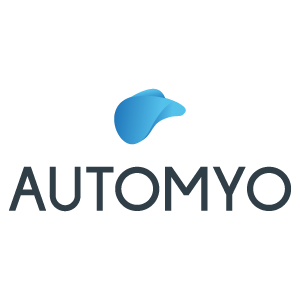
Automating Public Administration
Public administration has always been a pain point for our country, being a field full of problems and difficulties.
What we can certainly say is that a citizen-oriented area cannot fail to be effective and efficient.
Unfortunately, however, public administration is flawed in this very thing; it is a slow, complicated and widely criticized service by citizens. Its primary value is not recognized by the citizens exactly because this sector lacks operability.
One of the problems of Public Administration is that service providers are highly prone to making mistakes in carrying out their daily activities. The most common are: distraction errors, typing errors, all errors due to performing monotonous and repetitive activities.
Activities that do not stimulate staff, who consequently fall into distraction, causing discontent in the public and thus triggering a vicious cycle.
But how is it possible that in 2022 PAs are still so far behind?
How come they are still forced to perform these kinds of monotonous tasks and are so far from automation?
Actually, research conducted by FPA x Appian showed that 8 out of 10 PAs believe process automation is necessary and a priority, and 80 % of respondents believe automation is the key to improve services. One of the themes emerging from this research is the willingness to adopt digital technology for automation.
It is well known that public sector processes are characterized by a high presence of repetitive tasks (60-80% of the activities performed by the public administration are routine tasks), which, due to their inherent characteristics, are well suited to be automated using RPA “robot” software.
Thus, automating some business processes would be just one way to add value to public administrations.
OUR SOLUTION
In order to improve this sector and make it more accessible, efforts should be made to automate some activities, but before being able to do this, there should be changes in the entire organizations, changes at the organic level that would change the mindset of the administrations, and then proceed with the technological progress that would surely give a breakthrough to today’s Public Administration.
Claudio is a process automation and integration product that allows you to automate and monitor up to 15 times the number of daily processes in a third of the time, while increasing the accuracy rate of processing and increasing the value of your organization, being able to remain competitive in the market at all times. In this case, it enables PA to provide effective and efficient service.
Claudio can support the automation of a PA’s processes through a variety of automated tasks, including:
- Data entry into or between systems
- Loading data from spreadsheets
- Consolidation of data into standardized reports or formats
- Automating predetermined workflows based on established events or periodically scheduled events
- Transmission of automated periodic reporting
- Management of timesheets and industrial work reporting
- Automated email response management
- Practice routing
- Reminders for practice deadlines
- Automated processing
BENEFITS
In addition to being revolutionary, from an operational point of view this technology is able to ensure less dependence on external entities, thus saving budget, which can be invested in other activities.
In addition, Claudio, by eliminating all repetitive and monotonous activities, allows staff to perform more rewarding tasks, increasing employee productivity and employee relations, which in turn will be able to create a valuable experience for the citizen, starting a virtuous circle.

